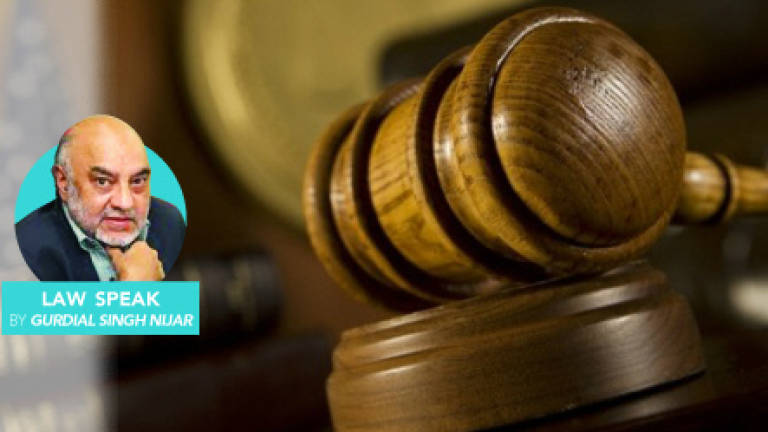Trade unions not liable for defamation

JUST last month the Federal Court recognised that a trade union and its officials cannot be sued for defamation.
This came about when the Federal Court dismissed Maybank's application for leave to appeal against a Court of Appeal decision which granted such absolute immunity.
What had happened was this. The National Union of Bank Employees was in a running dispute with Maybank. The union complained that the bank was not paying (or under-paying) bonus performance payments to its lower-level staff.
The union published leaflets one of which was titled "Tyranny of Maybank"; as well as articles on the union's website. Several other members distributed them. The bank alleged that these publications contained defamatory statements; and had wrongly accused the bank of "conducting its affairs in a dishonest manner by seeking to use funds for the sole benefit of its senior management at the expense of and in total disregard of its employees".
Maybank sued five employees of the union in separate suits for defamation.
The High Court struck out the bank's claim on the ground that the union had absolute immunity for such (tort) actions. The Court of Appeal upheld this decision.
The absolute immunity granted is only for such actions as defamation. The union can, however, be sued for other torts relating to specific property rights – such as for trespass, nuisance and the like. Then too the acts complained of must not be in furtherance of a trade dispute – that is any dispute "connected with employment".
How is it that trade unions and their officials and members are completely protected from such legal action?
The basis lies in a single provision in the Trade Unions Act 1959. This was modelled on English law. Between 1906 and 1982 no defamation action could be brought against a trade union in the UK. A provision in the UK trade unions law granted this total immunity. This immunity was abolished in 1982. Now a trade union is in the same position as any natural or corporate person; and can be sued for such action. There are however limitations. First, damages may not exceed a maximum sum related to the number of members of the union. Second, certain property of the union is protected against enforcement proceedings under a judgment.
But Malaysia's trade union law continues to grant absolute immunity.
Justice Harmindar Singh Dhaliwal, speaking on behalf of the Court of Appeal (comprising also Justice Lim Yee Lan and retired Justice Varghese George) explained the rationale for the provision.
"The Legislature had recognised the need for trade unions and its members to be protected from legal action. Trade Unions, by the very nature of their functions, are more than likely to offend some people who may then be minded to take legal action against them. The immediate consequence is that the funds of the unions, which come from the members who are mostly poor, will be at risk of being depleted due to such legal actions".
This recognises the socio-economic context for the grant of immunity to an association of workers from such actions at law. And the reality that all too often ordinary workers are pitted against large financially well-endowed corporations – which have the financial clout to badger unions into submission over their members' legitimate collective claims.
Interestingly, the Appellate Court said it mattered not whether the statements were made in an ongoing trade dispute – although in this particular case it held that there was indeed an existing trade dispute.
As the House of Lords observed in Vacher & Sons Ltd v London Society of Compositors there is nothing absurd in the notion of an association enjoying immunity from actions at law. It all depends on the policy pursued by an act promulgated by Parliament. And Malaysia's policy is to allow for this immunity to continue.
Indeed, the lawyer for Maybank argued that the bank was being unfairly denied a remedy. The Court of Appeal said that was really a matter for Parliament to decide – whether to retain this immunity or to alter it. The question, said the Appellate Court, is not one on which the courts should express any view. "It is a question for the legislature. If the law is thought to be a good law no doubt it will remain. If it is thought to be a bad law no doubt it will be altered", said the Court citing in support a 57-year-old decision of the Court of Appeal.
Gurdial, a former law professor, is presently a consultant at a law firm. Comments: letters@thesundaily.com